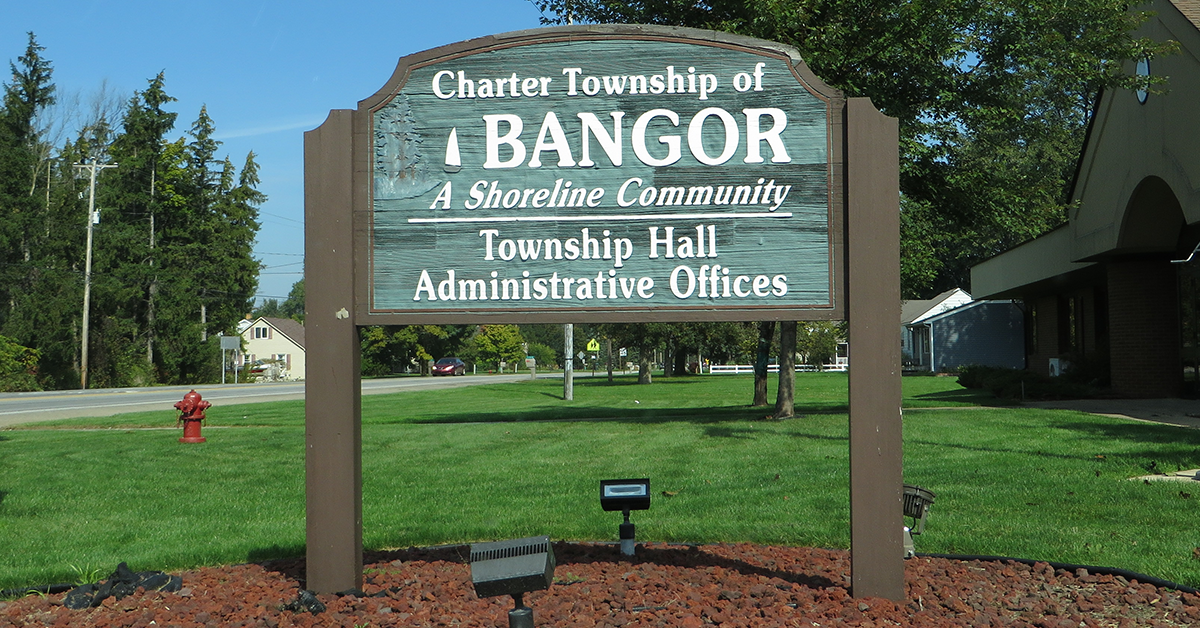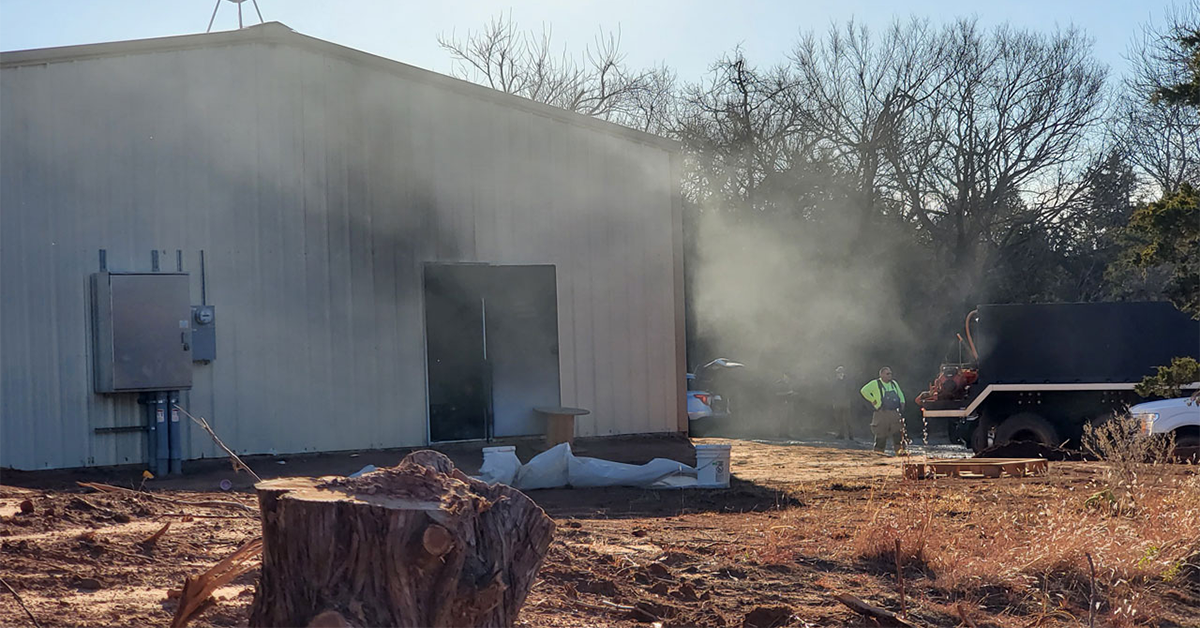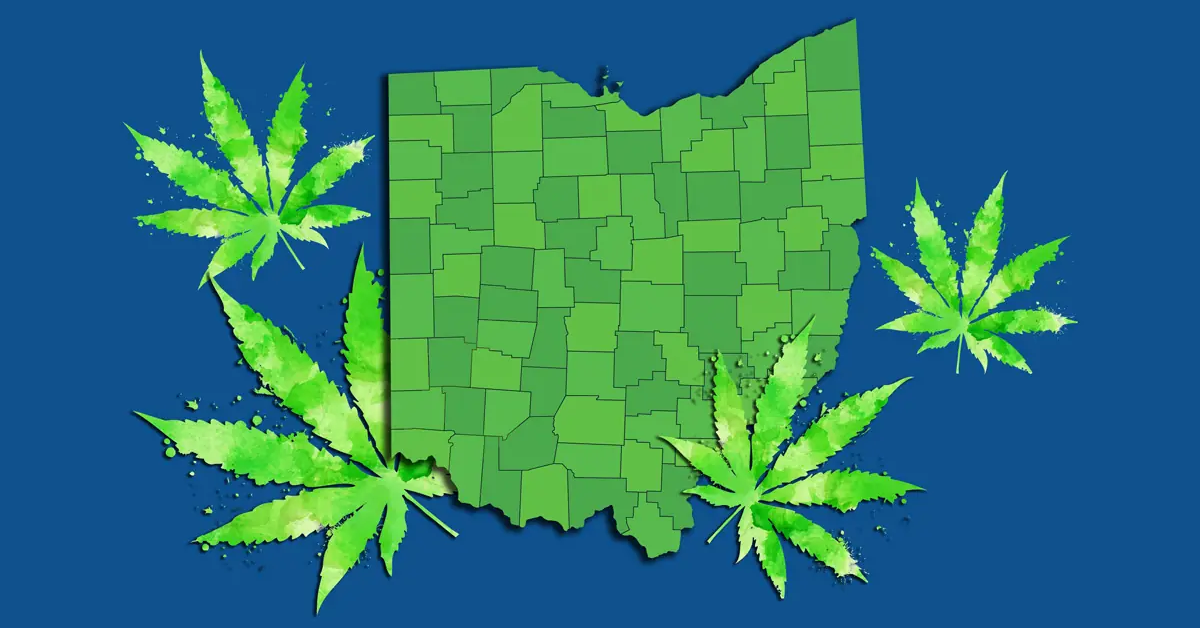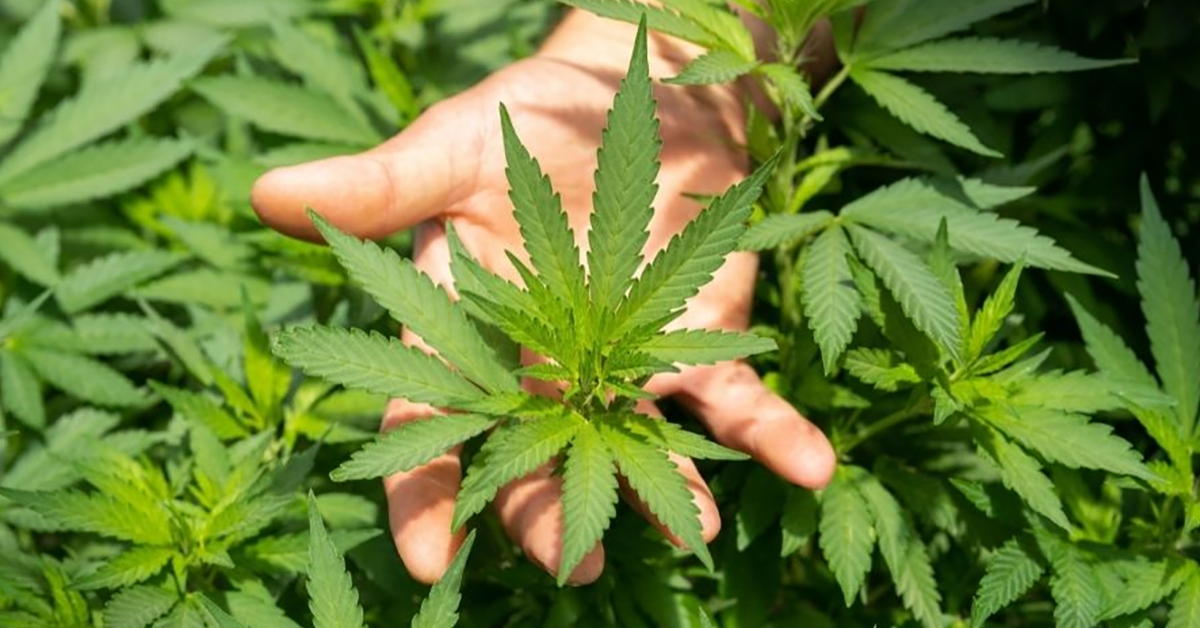Michigan's CRA Suspends Licenses of Muha Meds Over Safety Concerns

Michigan's Cannabis Regulatory Agency (CRA) recently took decisive action against Pinconning-based processor, Michigan Investments 10 Inc., whose products are marketed under the Muha Meds brand. The agency suspended the company's licenses citing serious concerns for customer health and safety.
The decision was made following a thorough investigation by the CRA, which revealed multiple regulatory breaches. The agency's findings showed that Michigan Investments 10 Inc. had incorrectly input data into Michigan's statewide monitoring system, Metrc, and failed to accurately track substantial quantities of their product. The investigation also uncovered products missing essential Metrc tags, rendering them untraceable to the legal cannabis market. Additionally, there were discrepancies between the company's physical inventory and its recorded Metrc inventory.
The products in question, including vape cartridges, infused pre-rolled joints, and gummies, had passed compliance testing. However, the CRA expressed concerns over their traceability, as these products could not be linked back to regulated batches of marijuana flower and concentrate. Given this lack of traceability, the agency stated that it could not assure the safety of these products.
Further issues were identified with Michigan Investments 10 Inc.'s handling of product sampling and testing. The company was found to have failed in providing adequate product quantities for testing and in correctly logging test results in Metrc. The CRA also noted inconsistencies in test results at various stages of product development.
In response to these findings, Michigan Investments 10 Inc., through a statement by employee Jenna Mullins, expressed their commitment to resolving the issues. The company acknowledged the CRA's initial administrative hold placed in September and stated that operations were temporarily resumed after addressing the agency's initial concerns. However, the subsequent suspension of their licenses came as a further setback.
In their statement, Michigan Investments 10 Inc. affirmed their dedication to providing high-quality cannabis products and services. The company expressed its intent to actively engage with the CRA to clarify requirements and work towards a prompt reopening of their facility. They emphasized their commitment to defending against the CRA's actions and assured customers of their confidence in their products.
Bangor Township Thrives Economically Thanks to Recreational Marijuana

In a significant economic milestone, Michigan's recent State House Fiscal Agency Report revealed that the state's revenue from recreational marijuana sales outpaced the combined earnings from beer, wine, and liquor in the last fiscal year. The burgeoning marijuana industry contributed a remarkable $266 million to the state's coffers, marking a notable shift in the state's economic landscape.
Bangor Township, a community in mid-Michigan, has emerged as a prime beneficiary of this development. Township Supervisor Glenn Rowley expressed his enthusiasm for the financial windfall brought about by recreational marijuana. "It's almost like the township was able to get a second job," Rowley remarked, highlighting the significant economic boost. The township received $627,000 in tax revenue from these sales, a substantial addition to its budget.
This influx of funds has been instrumental in enhancing local services and infrastructure. "This provided a revenue stream that allowed us to do a lot of things that you'd expect, like roads, clean drinking water, all the services that you would expect your government to provide to you. This helps fund it," Rowley explained. He also noted that Bangor Township was the second jurisdiction in Michigan to legalize recreational marijuana sales.
Despite initial skepticism, Rowley believes that perceptions are changing. He emphasized that the marijuana industry should not be seen through a stigmatized lens but rather as a professional and legitimate business sector. "It's not like a Cheech and Chong movie with a bunch of stoned people walking around like zombies," he said. "It's a business and it's professionals that are running them. And it's a great revenue stream for the municipalities."
Bangor Township currently hosts 11 recreational marijuana businesses, contributing significantly to the local economy. Including revenue from permits, the township's total earnings from the marijuana industry reached $902,000 in the last fiscal year. Rowley expressed his desire for further growth in this sector, acknowledging its role in funding community improvements like purchasing fire trucks and paving roads.
Michigan Appeals Court Upholds Denial of Insurance Claim for Marijuana Facility Fire

Conifer Insurance Co. has been ruled exempt from providing coverage for fire damage at a Michigan property used for marijuana cultivation, according to a recent decision by a state appeals court. The court found that the property owner, 23771 Blackstone LLC, did not comply with the policy's requirement for an automatic extinguishing system, leading to the denial of their insurance claim.
The ruling, delivered by a unanimous three-judge panel, supported Conifer's decision to deny coverage. This decision came despite Blackstone's argument that Conifer, aware of the property's lack of a suitable extinguishing system through its inspections, should not be allowed to refuse coverage. The court highlighted that the inspection reports were intended for Conifer's use and did not imply any agreement or understanding that would obligate Conifer to cover the damages despite non-compliance.
The property, located in Warren, Michigan, suffered a fire in June 2020. Conifer had issued an insurance policy to Blackstone in 2017, which was renewed annually. The policy included a clause necessitating an automatic extinguishing system, described as any system with connected sprinklers, discharge nozzles, ducts, valves, pumps, and tanks.
Blackstone contended that Conifer couldn't deny coverage because the insurer was aware of the absence of such a system. However, the court noted that the policy's specific terms indicated that the presence of an automatic extinguishing system was a fundamental condition of the insurance. The panel emphasized that any changes to the policy terms would require an official endorsement from Conifer, which was not present in this case.
Moreover, the court stated that while Michigan law allows for the reformation of insurance policies to reflect the actual agreement between parties, there was no evidence suggesting a mutual understanding that an extinguishing system was not required for coverage.
The panel comprised Judges Mark T. Boonstra, Michael F. Gadola, and Allie Greenleaf Maldonado, who collectively upheld the trial court's summary judgment in favor of Conifer Insurance Co.
First Recorded Occupational Asthma Fatality in U.S. Cannabis Industry Occurs in Massachusetts

Before we delve into the article, we want to address our Michigan readers directly. While the incident reported below occurred in Massachusetts, we believe it carries significant relevance for everyone involved in the cannabis industry, including those in Michigan. The tragic event serves as a crucial reminder of the potential health risks associated with working in this rapidly expanding sector, particularly for individuals with pre-existing respiratory conditions like asthma. It's a poignant warning that highlights the importance of workplace safety and health precautions across the cannabis industry, regardless of state boundaries. With Michigan's burgeoning cannabis market, this story is not just news from another state; it's a vital lesson in ensuring the safety and well-being of our workforce here at home.
The U.S. cannabis industry recently faced a significant tragedy, marking the first reported occupational asthma death. A 27-year-old worker in Massachusetts succumbed to a fatal asthma attack in January 2022, a concerning development highlighted in a federal report released on Thursday. This incident underscores the increasing health risks in the burgeoning U.S. cannabis sector, particularly regarding respiratory conditions like asthma, exacerbated by the rapid growth following state-level legalizations.
The federal report, emphasizing missed prevention opportunities, noted the critical need for enhanced workplace exposure management, medical surveillance, and adherence to established asthma guidelines in the cannabis industry. The importance of promptly addressing new or worsening asthma symptoms among workers in cannabis facilities was stressed as a key measure to avoid similar tragedies.
This case was detailed in a report by the U.S. Centers for Disease Control and Prevention, encapsulating the findings from a federal Occupational Safety and Health Administration (OSHA) inspection. The investigation encompassed a thorough worksite exposure assessment, interviews with coworkers and next of kin, medical record analysis, and collaboration with the Massachusetts Department of Public Health.
While the report doesn't reveal the identity of the worker or the facility, OSHA filings from last year indicated that an employee at Trulieve's Holyoke location, identified as Lorna McMurrey, 27, suffered a fatal asthma attack while packaging cannabis pre-rolls.
Studies cited in the report identify multiple respiratory hazards in cannabis cultivation and production, such as microbial agents, plant allergens, and chemicals including pesticides. The cannabis plant itself can pose specific allergenic risks.
The incident comes amid a surge in recreational marijuana legalization across the U.S., with almost half the states now permitting adult recreational use. This growth has sparked calls for enhanced safety measures in the marijuana industry, ensuring the protection of workers and the public.
Scott Gagnon, a Maine-based cannabis industry watchdog, views this incident as a crucial warning for lawmakers to implement stricter regulations around the cannabis industry. Conversely, Paul Armentano, deputy director of NORML, asserts that the cannabis industry aims for utmost safety, stressing that such incidents are less likely in regulated environments where businesses adhere to standard workplace safety regulations.
An Open Message to Ohio from Michigan: Insights on Navigating the Legal Marijuana Landscape

With Ohio's recent decision to legalize recreational marijuana through Issue 2, there's a significant opportunity to glean lessons from neighboring states like Michigan, which have already traversed this path.
Learning from Hazel Park's Experience
In Hazel Park, a small city near Detroit, Mayor Mike Webb shared insights from his city's journey through marijuana legalization. Despite supporting recreational cannabis use, Mayor Webb highlighted the challenges encountered, particularly from individuals who manipulated the system for personal gain. The city's initial attempt to limit the number of dispensaries sparked a series of legal disputes from the 36 applicants vying for just four spots. These legal confrontations, as Michigan Attorney Barton Morris pointed out, often lead to prolonged litigation and significant financial strain for both the applicants and the city. Mayor Webb's advice to Ohio is clear: draft robust, legally sound ordinances to avoid similar pitfalls.
Ferndale's Proactive Approach
Ferndale, Michigan, provides another perspective. City Manager Joseph Gacioch emphasized the importance of appointing a dedicated cannabis expert within the municipal staff. This role is crucial for navigating the complexities of zoning, planning, and regulatory compliance in the cannabis industry. Wally Manju, who owns Nature's Remedy in Ferndale, echoed the importance of responsible ownership, cautioning against transient players in the market who might not be committed to long-term sustainability.
Employment and Drug Testing Policies
Michigan's approach to employment and drug testing in the context of legalized marijuana offers varied insights. While many governmental bodies have discontinued pre-employment marijuana screenings, private companies retain the discretion to test employees and applicants, with the potential to terminate employment based on positive results. Employment law expert Brett Gelbord highlighted the potential for legal challenges in Ohio, considering the prolonged detectability of cannabis in the body.
Implications for Ohio Schools
Educational institutions in Michigan, such as the Hazel Park School District, have observed an uptick in cannabis-related incidents. This shift necessitated the installation of vape sensors in school bathrooms, a measure Ohio schools might consider to curb THC vaping. The district's experience underscores the importance of adapting awareness and prevention programs to address the changing perceptions and availability of cannabis, akin to historical efforts focused on alcohol misuse.
Market Saturation Concerns
In Hazel Park, Mayor Webb noted concerns about market saturation, a sentiment echoed in Ferndale. The proliferation of cannabis stores in these areas raises questions about the sustainability of such a densely populated market. This stands in stark contrast to Detroit's more cautious approach, which only recently began to allow recreational dispensaries.
Reflecting on the broader impact, Mayor Webb acknowledged the financial benefits brought by legal marijuana but expressed reservations about its overall success. A critical aspect highlighted by Michigan residents is the sales tax on cannabis. Michigan's 10% rate, similar to Ohio's proposed rate, is strategically important to undercut the black market.
In Conclusion
These diverse experiences from Michigan offer Ohio a roadmap filled with both cautionary tales and successful strategies as it embarks on its own journey with legal recreational marijuana. From regulatory challenges to market dynamics, Ohio has the unique advantage of learning from its neighbor's experiences.
Michigan Cannabis Sales Experience Slight Dip in October, But Yearly Growth Remains Strong

Michigan's cannabis industry experienced a slight decrease in sales during October, reporting a 4.3% drop to $262.9 million compared to $274.7 million in September. Despite this monthly decline, the industry saw a notable annual increase, with sales rising 25.5% from October of the previous year. Notably, sales had reached their peak in July at $276.7 million.
A deeper look into the sales statistics reveals a significant shift in the market dynamics. Medical cannabis sales have dramatically decreased by 70.7% year-over-year, reaching just $4.9 million in October, a 10.2% decline from September. In stark contrast, adult-use cannabis sales have surged, showing a 33% increase compared to the same period last year, totaling $258.5 million. However, this segment also experienced a minor month-over-month decrease of 4.2%.
The cumulative sales for 2023 so far have increased by over a third compared to the first ten months of 2022. This growth trajectory suggests that the industry is on track to surpass $3 billion in sales by the end of the year.
In terms of product popularity among adult-use consumers, flower products lead with $118 million in sales. Vape cartridges followed with $49.5 million, inhalable compound concentrates at $27 million, and shake and trim sales at $23.2 million. This distribution underscores the diverse preferences in the Michigan cannabis market.


 Helpful Links
Helpful Links